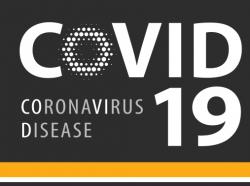 |
March 12, 2020
11:11 a.m.
Additional protocols have been added -- on top of the normal 24/7 airport housekeeping --to monitor cleanliness and the availability of supplies for proper handwashing and hand sanitizing. The Airport housekeeping provider also is hiring new staff daily.
Cleaning in the security checkpoints has increased with primary focus on cleaning the bins used to move passenger items through x-ray machines.
The Airport and its dining concessionaire have ordered more than 40 additional hand sanitizing stations, both free standing and counter mounted units, that upon expected arrival this week will promptly be installed throughout the terminal and in the food courts.
Throughout the cleaning efforts we have focused on places people touch often for regular wipe downs and overnight deep cleaning. These include but are not limited to hand rails, people movers, restrooms, seating, and arm rests. In addition, the Airport has ordered three additional electrostatic spray cleaners.
Cleaning solutions to help combat viruses such as COVID-19 are being used. These include Proxy and NABC. Both have been recommended by the manufacturer to use currently. We have added BNC-15 and GS High Dilution, which have recommended for this specific virus. Deep cleaning includes electrostatic spray surface cleaning. The process involves spraying an electrostatically charged specialized mist solution onto surfaces and objects.
Currently, we encourage our passengers to use their best judgement when making plans to travel or while on their travels. For example, passengers are encouraged to provide adequate space between each other while waiting to be screened or waiting in other lines.
In addition, we have provided links to COVID-19 coronavirus resources, such as the CDC and Mecklenburg County Public Health, to help keep customers informed.
CDC preventative guidance appears on our visual messaging screens located throughout the terminal. These screens can be viewed by passengers and Airport staff.
The Aviation Department held a Communicable Disease Table-Top Exercise (TTX) for all CLT stakeholders on Friday, March 2, to test our response plan. Along with Aviation, participating partners included airlines, TSA, FAA, CFD-Emergency Management, Mecklenburg Emergency Medical Services and Mecklenburg Public Health.
CLT is continually reviewing its efforts and remains prepared to implement additional measures, if, and when needed.
What you can do
The CDC always recommends everyday preventive actions to help prevent the spread of respiratory diseases, including:
- Wash your hands often with soap and water for at least 20 seconds, especially after using the restroom; before eating; and after blowing your nose, coughing, or sneezing. If soap and water are not readily available, use an alcohol-based hand sanitizer. For information about handwashing, see CDC’s Handwashing website.
- Avoid close contact with people who are sick.
- Avoid touching your eyes, nose, and mouth.
- Stay home when you are sick.
- Cover your cough or sneeze with a tissue, then throw the tissue in the trash.
For information specific to healthcare, see CDC’s Hand Hygiene in Healthcare Settings